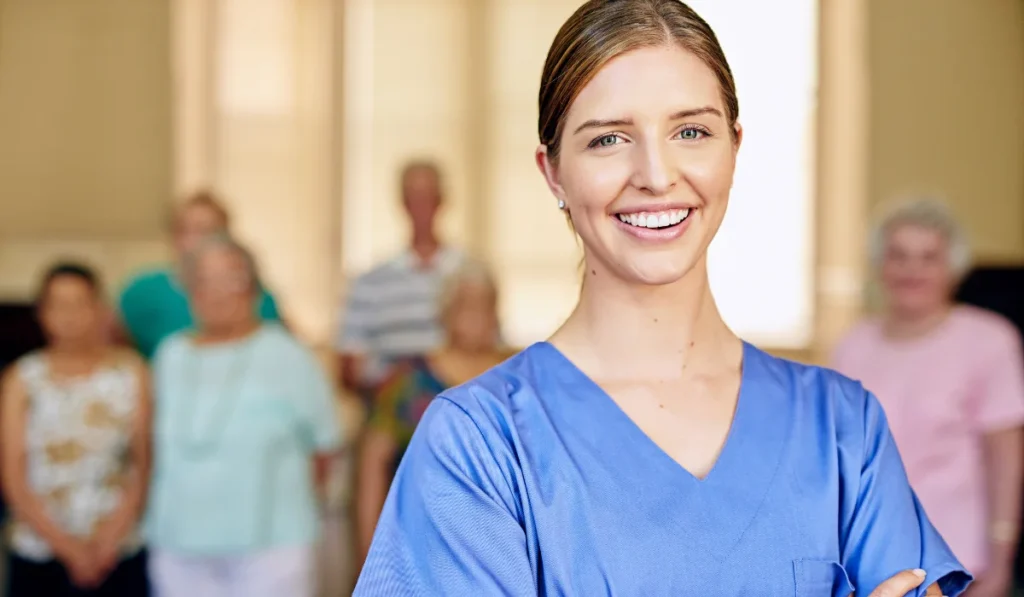
If you’re thinking about becoming a Personal Care Assistant (PCA), you’re probably wondering how long it takes to get certified.
The short answer: most PCA training programs take between 40 and 60 hours to finish.
But before you sign up, it’s good to understand what really affects that timeline. Completing a PCA training course isn’t just about showing up for class or demonstrating your competency in activities of daily living (ADLs).
Let’s take a closer look at what can shape the timeline for your certification.
Key Takeaways
- PCA training usually takes between one to six weeks, depending on class schedule and program type.
- Your timeline can change based on language support, testing needs, class size, and personal commitments.
- Training includes help with ADLs, infection control, mental health, and care for people with disabilities.
- Agencies like Friends & Family give free PCA training, job support, and roles in CDPAP, home care, and beyond.
Typical Timeframe to Complete Personal Care Assistant Certification
Most PCA training programs in New York take 40 to 60 hours to finish. That includes both classroom instruction and hands-on practice. A full-time schedule might wrap up in a week, while part-time or evening classes often take three to six weeks.
Here are the main factors that can impact how long it takes to complete PCA certification.
Training Format
In-person PCA training courses usually run on a fixed schedule, which can help you finish faster. Many students complete these in one to two weeks.
If you’re doing online or hybrid learning, you may have more flexibility, but it can take longer depending on your pace.
Online formats are ideal for people balancing other responsibilities like caregiving or homemaking.
Your Personal Schedule and Commitments
Life happens. If you’re juggling a job, taking care of your kids, or supporting someone with disabilities, part-time training might be your best bet.
Just keep in mind that fewer hours per week means your personal care aide training will likely take longer to complete.
State Requirements and Curriculum Standards
In New York, PCA certification must meet guidelines set by the Department of Health. Training programs include instruction in ADLs, toileting, infection control, first aid, and patient care.
Some programs even cover the basics of Alzheimer’s and mental health support. These healthcare industry standards are in place to protect clients and make sure you’re ready to work in home care or care facilities safely.
Language and Literacy Support
For caregivers whose first language isn’t English, programs that offer ESL support can be incredibly helpful.
Some people need more time to go through training materials, quizzes, and skill assessments before they feel confident handling patient care tasks like medication reminders or meal preparation.
At Friends & Family Home Care, we offer PCA training courses in both English and Spanish to help our caregivers get certified as quickly and easily as possible.
Competency Evaluation and Testing
Once your training program is done, you’ll take a test to prove your skills.
These exams often include both written quizzes and hands-on evaluations. They measure your ability to perform real-life tasks, like helping someone dress, assisting with toileting, or following infection control protocols.
Passing this test is required to earn your PCA certification—and you may need extra time to study depending on your comfort level.
Class Size and Instructor Availability
Class size can affect your learning experience.
In smaller classes, you might get more one-on-one time with instructors—many of whom are registered nurses or experienced home health aides (HHAs). But smaller classes may meet less often.
Larger groups can move faster, but hands-on training might take longer if equipment or instructors are limited.
Enrollment Timing and Waitlists
Depending on demand, you might need to wait for the next open seat.
In places like NYC, where in-home care services are always in high demand, some training centers offer rolling admissions while others stick to a calendar schedule.
Ask about enrollment timelines and if vouchers or financial assistance are available to cover your tuition.
What Comes After PCA Certification?
Once you’ve finished training, you can work in many different healthcare settings. Personal care aides often assist people with disabilities, chronic conditions, or aging-related challenges.
Many work in private homes, assisted living facilities, or nursing homes. Others may support independent living for clients who need a little help each day.
Becoming a PCA is also a great stepping stone if you’re thinking about advancing in the healthcare field. You can later train to become an HHA, certified nursing assistant (CNA), or nurse aide.
Ready to Start Your PCA Career?
At Friends & Family Home Care, we offer free PCA training opportunities for qualified applicants. Our training program is quick, affordable, and designed for real-world success. Once certified, you’ll be ready to help others improve their quality of life.
We offer:
- Free PCA training course with flexible enrollment options
- Job placement support for certified personal care aides
- Opportunities to work in CDPAP, in-home care, and assisted living facilities
- Guidance from experienced healthcare professionals, including registered nurses
Get started on a fulfilling career in patient care and personal wellness. Contact us now to apply for PCA training!